What vegetables can huskies eat? It’s a question every husky owner has pondered. We’re here to provide you with an in-depth guide on a balanced, vegetable-inclusive diet for your beloved husky.
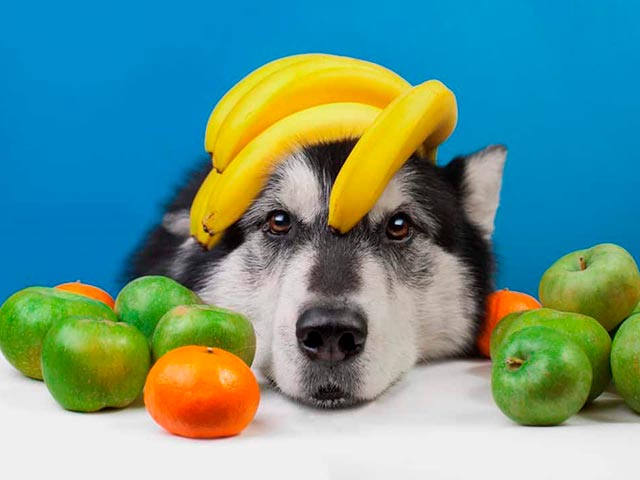
Understanding Your Husky’s Diet
Huskies, like us humans, have specific dietary needs. Yes, they’re known for their wolf-like appearance and love for meat, but can they munch on some greens? And if so, what are the best options? Before we jump into what vegetables huskies can eat, it’s vital to grasp their basic nutritional needs.
Huskies are a high-energy breed with a robust metabolism, so they need a diet that can keep up with their active lifestyle. They require a balanced intake of protein, carbohydrates, fats, vitamins, and minerals. While protein generally comes from meats, other nutrients can be sourced from a variety of foods, including vegetables.
Now, let’s remember that every dog is unique, and a husky’s diet can differ based on factors such as age, weight, health condition, and activity level. Therefore, knowing what your husky can and can’t eat is essential for their overall wellbeing. Can you guess where vegetables come into play? We’ll find out soon!
Basic Nutritional Needs of Huskies
Huskies, just like any other dog breed, require a balanced diet to thrive. However, due to their high energy levels and unique metabolic needs, their diet may look slightly different from other breeds. Their nutrition must include:
Proteins: Huskies require high-quality protein sources. These are essential for tissue repair and muscle development. The protein can come from a variety of sources, including chicken, beef, fish, or lamb.
Fats: Huskies need a moderate amount of fats. These are a concentrated energy source, essential for skin and coat health, and are crucial in the absorption of certain vitamins. Good fat sources include fish oil and flaxseed.
Carbohydrates: Contrary to popular belief, dogs do need some carbs. They provide a source of quick energy. However, the carbohydrate intake should be from quality sources like sweet potatoes and brown rice.
Vitamins & Minerals: Essential for a wide array of functions, from bone health to immune function. These can come from different vegetables and fruits.
Water: A vital component of any diet, it’s necessary for digestion, nutrient absorption, and maintaining body temperature.
Now let’s outline this in a table for easier understanding:
| Nutrient | Why It’s Needed | Good Sources |
|---|---|---|
| Proteins | Tissue repair, muscle development | Chicken, beef, fish, lamb |
| Fats | Energy, skin and coat health, vitamin absorption | Fish oil, flaxseed |
| Carbohydrates | Quick energy source | Sweet potatoes, brown rice |
| Vitamins & Minerals | Bone health, immune function | Vegetables, fruits |
| Water | Digestion, nutrient absorption, body temperature | Clean, fresh water |
But the question is, what vegetables can huskies eat to supplement their nutrient intake? Let’s find out next.
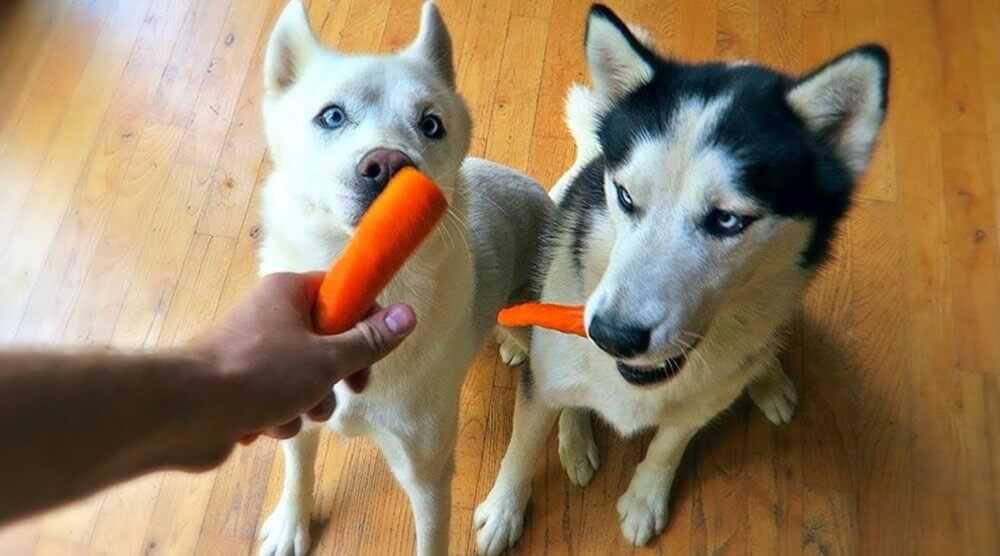
Foods Huskies Can and Can’t Eat
While huskies are primarily carnivorous, they can also benefit from certain fruits and vegetables in their diet. These can provide essential vitamins and minerals, adding a beneficial supplement to their main meals. However, it’s crucial to know which foods are safe and which can pose potential health risks.
| Food | Can Huskies Eat It? |
|---|---|
| Carrots | Yes |
| Broccoli | Yes |
| Cucumbers | Yes |
| Pumpkin | Yes |
| Onions | No |
| Garlic | No |
| Grapes/Raisins | No |
| Avocado | No |
| Chocolate | No |
| Alcohol | No |
Now, answering the question, what vegetables can huskies eat? Huskies can safely consume a variety of vegetables, such as carrots, broccoli, cucumbers, and pumpkin. These veggies are rich in vitamins and fiber, promoting good health and digestion.
On the flip side, huskies should never be fed onions, garlic, or any foods containing them as they can lead to blood cell damage. Similarly, foods like grapes, raisins, avocados, chocolate, and alcohol are toxic and should be avoided at all costs.
Comprehensive List of Vegetables Huskies Can Eat.
Absolutely, huskies can safely eat a variety of vegetables. These can provide them with vital nutrients, vitamins, and fiber. Here’s a comprehensive list of vegetables your husky can enjoy:
| Vegetable | Benefits |
|---|---|
| Carrots | High in Vitamin A, beneficial for eye health, and act as a low-calorie treat. |
| Broccoli | Rich in vitamins C and K, as well as fiber. But, it should be given in moderation due to its isothiocyanates content. |
| Cucumbers | Low in calories and fat, making them a great treat for overweight huskies. |
| Pumpkin | High in fiber, it’s excellent for digestion and can help with both constipation and diarrhea. |
| Sweet Potatoes | Full of dietary fiber and rich in vitamins A and C. |
| Green Beans | Low in calories and high in fiber, they are a good choice for huskies needing to lose weight. |
| Spinach | High in vitamins A, B, C, and K, but should be given in moderation due to the high oxalic acid content. |
| Bell Peppers | Packed with vitamins A and C, they can boost your husky’s immune system. |
| Zucchini | A low-calorie option rich in nutrients like potassium, vitamin C, and fiber. |
| Peas | They are a good source of vitamins A, B, and K, as well as iron and potassium. |
Remember, while considering what vegetables can huskies eat, it’s important to introduce these foods gradually and in moderation to monitor for any adverse reactions. Also, always consult with your vet if you’re unsure about introducing a new food to your husky’s diet.
Broccoli and its Benefits
Broccoli is an excellent vegetable that is not only beneficial for humans but also for our furry friends, like huskies. It is packed with nutrients, offering a plethora of health benefits. When answering the question of what vegetables can huskies eat, broccoli undoubtedly makes the list.
Broccoli is rich in vitamins C and K. Vitamin C is a potent antioxidant that aids in boosting the immune system, while vitamin K is essential for proper blood clotting and bone health. It also contains a high amount of fiber, which aids in digestion and can help manage your husky’s weight by promoting a feeling of fullness.
Interestingly, broccoli also contains certain compounds that have been shown to have anti-cancer properties. The sulforaphane in broccoli is known to have antioxidant and anti-inflammatory benefits, which can potentially help fight off certain types of cancer.
However, like all good things, broccoli should be given to huskies in moderation. This is because it contains isothiocyanates, which can cause mild-to-severe gastric irritation in dogs if consumed in large amounts.
To incorporate broccoli into your husky’s diet, you can either lightly steam it or give it raw, chopped into small, bite-sized pieces. Always remember to introduce any new foods gradually and monitor for any adverse reactions. Always consult with your vet if you’re unsure about adding a new food to your husky’s diet.
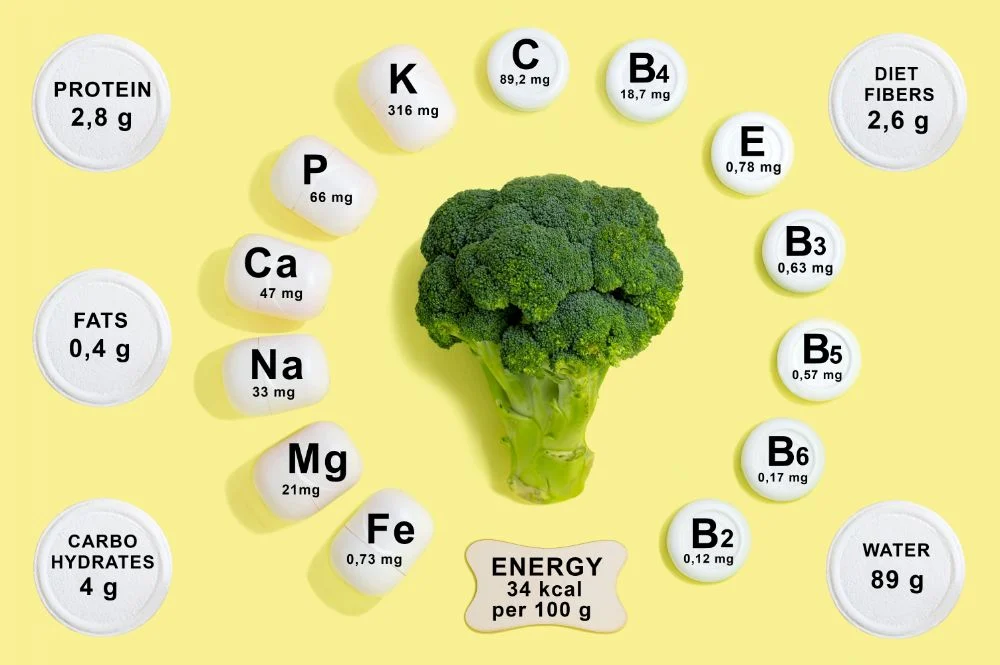
The Importance of Carrots
Carrots are another vegetable that adds value to the diet of a husky. So, when thinking about what vegetables can huskies eat, don’t forget to include carrots in the list.
Carrots are loaded with essential nutrients like vitamin A, which is crucial for maintaining good eye health. Vitamin A deficiency can lead to night blindness and other eye issues in dogs, just as it can in humans. Carrots also have a high fiber content, which aids in digestion.
These orange veggies are also known for their dental benefits. When your husky chews a raw carrot, it can act as a natural toothbrush, helping to scrub off plaque and promote healthier gums.
Moreover, carrots are low in calories and high in water content, making them an excellent treat for overweight dogs. They can be given raw, steamed, or even pureed and added to your husky’s regular food. As always, when introducing new food items to your pet’s diet, start gradually and keep an eye out for any adverse reactions.
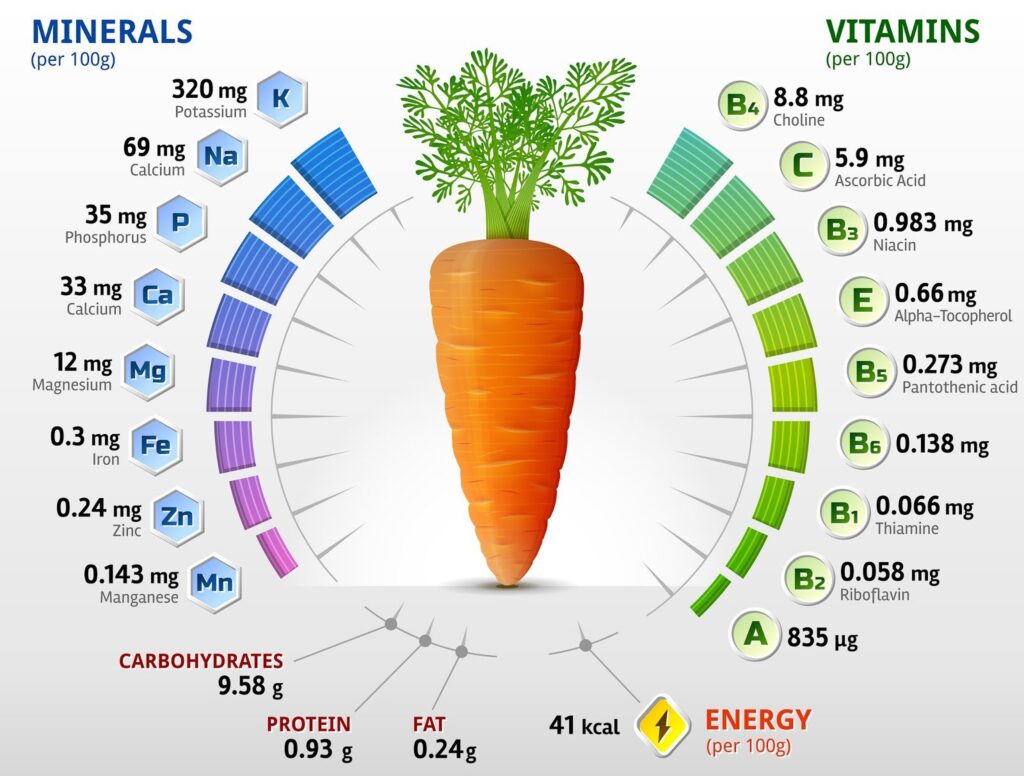
Cucumbers for Hydration
Cucumbers are a fantastic hydrating snack for your husky. If you’re considering what vegetables can huskies eat, cucumbers certainly fit the bill.
Being 95% water, cucumbers are excellent for keeping your husky hydrated, especially during the hotter months. They’re also low in calories, fat, and oils, making them a guilt-free treat for huskies, particularly those on a weight management plan.
Cucumbers are a good source of vitamins K, C, and B1, as well as potassium, copper, magnesium, and biotin. These nutrients support overall health, enhancing the immune system, promoting healthy skin and coat, and contributing to energy production.
Cucumbers can be served raw and chopped into manageable pieces. Some huskies might even enjoy them chilled as a refreshing snack. But as with all new foods, introduce them slowly and monitor your husky for any unusual reactions. Remember, moderation is key, even with healthy treats like cucumbers.
The Power of Pumpkin
When discussing what vegetables can huskies eat, the humble pumpkin deserves special mention. Not only is it a tasty treat for your husky, but it also packs a powerful nutritional punch.
Pumpkin is extremely high in fiber, which aids in digestion. It can be a useful tool in regulating your husky’s bowel movements, as it can help with both constipation and diarrhea. This makes pumpkin a go-to food for many pet owners when their dogs have digestive issues.
In addition, pumpkin is rich in beta-carotene, which is converted into vitamin A in your husky’s body. This vitamin is vital for vision, growth, and muscle strength.
Moreover, pumpkin is low in calories and high in moisture content, making it a great option for overweight dogs.
You can feed your husky canned pumpkin puree or cook and mash fresh pumpkin at home. Remember, moderation is essential, and always consult your vet before adding new foods to your pet’s diet.
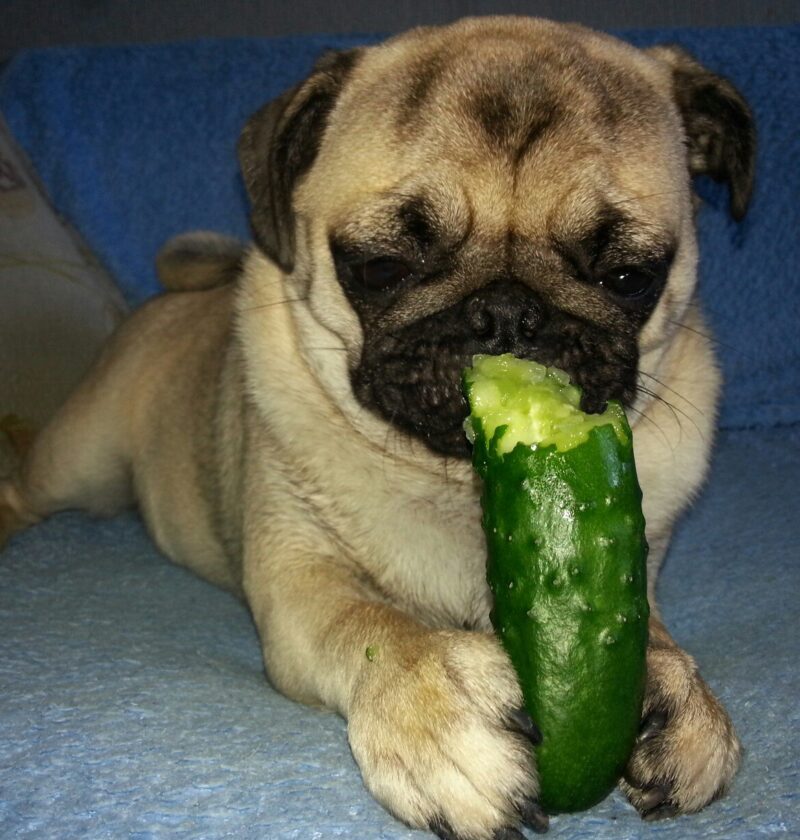
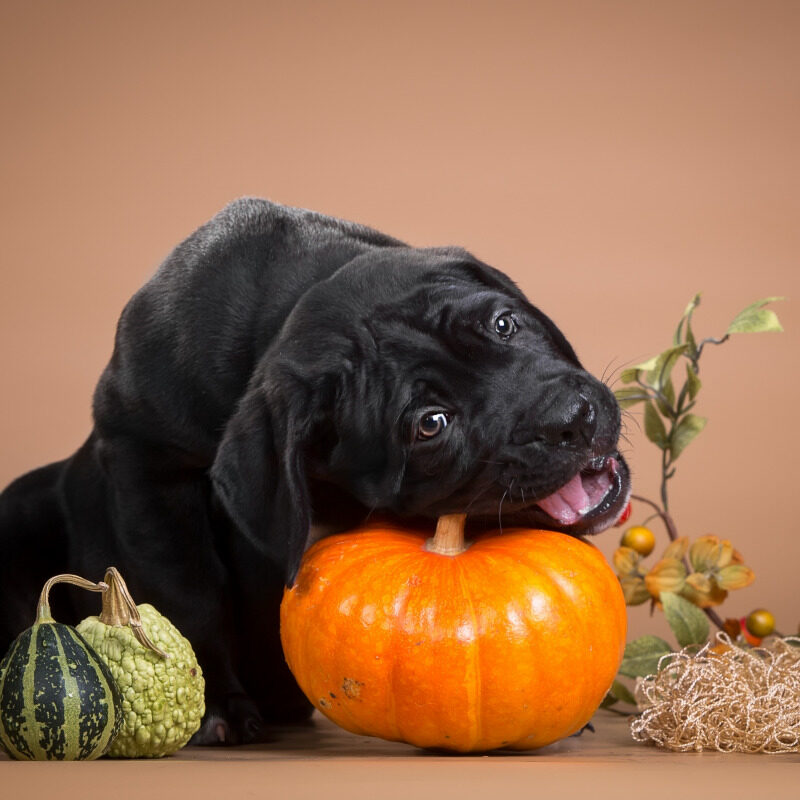
Preparing Vegetables for Your Husky
Preparing vegetables for your husky is an easy task, but there are a few things to consider to ensure they’re both appealing and safe for your pet. Here’s a simple guide on how to prepare veggies for your husky:
First, clean the vegetables thoroughly. This is a crucial step as it removes any residual pesticides or dirt that could be harmful to your dog.
Next, decide whether to serve the vegetables raw or cooked. This depends on the vegetable and your dog’s preference. Some vegetables like cucumbers and carrots can be served raw and are great for your dog’s dental health. Others, like sweet potatoes, should always be cooked to improve digestibility.
When cooking vegetables, it’s usually best to steam or boil them without adding any seasonings or oils. Some seasonings, like onion or garlic powder, can be toxic to dogs. Steaming or boiling also helps preserve the nutrients in the veggies.
Lastly, cut the vegetables into bite-sized pieces to prevent choking and make them easier to eat.
Remember, whenever introducing a new food into your husky’s diet, do so gradually and observe for any adverse reactions. Always consult your vet if you’re unsure about a new food. So, now that you know how to prepare them, what vegetables can huskies eat? Check our comprehensive list above!
Raw or Cooked
Whether to serve vegetables raw or cooked to your husky often depends on the type of vegetable and your husky’s personal preference. Here’s a quick breakdown:
| Vegetable | Raw | Cooked |
|---|---|---|
| Carrots | Yes | Yes |
| Broccoli | Yes | Yes |
| Cucumbers | Yes | No |
| Pumpkin | No | Yes |
| Sweet Potatoes | No | Yes |
| Green Beans | No | Yes |
| Spinach | Yes | Yes |
| Bell Peppers | Yes | No |
| Zucchini | Yes | Yes |
| Peas | Yes | Yes |
Carrots, broccoli, spinach, zucchini, and peas can be given either raw or cooked. These veggies are versatile and can be a crunchy treat or a soft addition to your husky’s meal.
Cucumbers and bell peppers are usually served raw to retain their crunch and high water content.
Pumpkin, sweet potatoes, and green beans should always be cooked to enhance their digestibility.
Remember, when feeding cooked vegetables, avoid using any seasoning or oil. And as always, introduce any new foods gradually and monitor your husky for any reactions. The question of what vegetables can huskies eat is easy to answer when you know how to properly prepare them.
How to Properly Serve Vegetables
Knowing how to properly serve vegetables to your husky can make a significant difference in how well they are accepted and digested. Here are some tips to serve vegetables to your husky in a safe and appealing manner:
1. Clean Thoroughly: Always wash the vegetables properly to remove any pesticides, dirt, or bacteria that could harm your husky.
2. Preparation Method: Depending on the type of vegetable, you might need to cook it. Steaming or boiling is usually the best method as it preserves the nutrients and makes the vegetable easier to digest. Remember not to add any seasoning or oil.
3. Serving Size: Always cut the vegetables into manageable, bite-sized pieces to prevent choking and facilitate digestion.
4. Presentation: Mix the vegetables with your husky’s regular food or use them as a healthy treat. Some huskies might prefer their veggies mixed in with their regular food, while others might enjoy them as a separate snack.
5. Frequency & Portion: Vegetables should complement your husky’s diet, not replace their regular meals. Serve them in moderation, considering your pet’s size, age, and activity level.
Finally, it’s always wise to consult your vet before introducing any new food into your husky’s diet. So, when considering what vegetables can huskies eat, you now have the knowledge on how to serve them properly.
Recipes for Your Husky
Including vegetables in your husky’s diet doesn’t have to be boring. Here are a few simple recipes you can prepare for your furry friend:
1. Veggie Mix-In
| Ingredients | Procedure |
|---|---|
| 1 cup of steamed carrots and peas | Mash or lightly blend the vegetables. Mix them in with your husky’s regular meal. |
2. Vegetable and Chicken Broth
| Ingredients | Procedure |
|---|---|
| 1 cup of chopped carrots, broccoli, and zucchini | 1 cup of low sodium chicken broth |
3. Pumpkin Puree
| Ingredients | Procedure |
|---|---|
| 1 small pumpkin | Cut the pumpkin into chunks, remove the seeds and steam until it’s soft. Puree in a blender and serve it mixed with your husky’s meal or as a separate treat. |
Remember, these recipes should be used as a supplement to your husky’s regular diet, not a replacement for balanced, commercial dog food. When thinking about what vegetables can huskies eat, these recipes should provide you with some creative ways to include vegetables in your husky’s diet. Always introduce new foods slowly and watch for any adverse reactions. And as always, consult your vet if you’re unsure about a new food.

Monitoring Your Husky’s Diet
Monitoring your husky’s diet is an essential aspect of ensuring their overall health. Even with a comprehensive understanding of what vegetables can huskies eat, vigilance is key when introducing new foods.
Watch your husky closely for any changes in their behavior, energy level, or physical condition after introducing new foods. If your dog experiences any adverse reactions, such as vomiting, diarrhea, or changes in appetite, stop feeding the new food immediately and consult with a vet.
Maintain a balanced diet. Remember, vegetables should be a supplement to a high-quality commercial dog food, not a replacement. Huskies require a balanced diet that meets their specific needs in terms of protein, carbohydrates, fats, and micronutrients.
Regularly check your husky’s weight. Huskies are an active breed, and maintaining a healthy weight is critical for their health and longevity. If you notice any drastic changes in your husky’s weight, it might be time to reassess their diet.
Lastly, regular vet check-ups are essential to monitor your husky’s health and ensure their diet is meeting their nutritional needs.
Signs of a Healthy Diet
Recognizing the signs of a healthy diet in your husky can provide peace of mind and confirmation that you’re doing things right. So, after considering what vegetables can huskies eat and incorporating them into your pet’s meals, here’s what to look for:
1. Energy Level: A balanced diet will provide your husky with the energy they need. If your husky is active, playful, and alert, it’s a good sign their diet is meeting their energy requirements.
2. Healthy Weight: A healthy diet helps maintain an ideal weight. Huskies should have a visible waist when viewed from above and you should be able to feel (but not see) their ribs.
3. Good Digestion: Regular, firm bowel movements are a sign of good digestion. Sudden changes could indicate a dietary issue.
4. Shiny Coat and Healthy Skin: A balanced diet promotes a shiny coat and healthy skin. If your husky’s coat is shiny and smooth, and their skin is free of dry patches and irritation, their diet is likely balanced.
5. Bright Eyes and Clean Teeth: A healthy diet can be seen in bright, clear eyes and clean, strong teeth.
If you notice any changes or concerns, it’s always best to consult with a vet. Monitoring these signs can help ensure your husky’s diet is on the right track.
Warning Signs of a Poor Diet
Despite the best intentions, sometimes a husky’s diet may not be providing the nutrition they need. Here are some warning signs of a poor diet:
| Warning Sign | What it Could Mean |
|---|---|
| Low Energy Levels | Insufficient calories or a lack of essential nutrients |
| Unexplained Weight Loss or Gain | Not enough or too many calories, respectively |
| Dull, Dry, or Brittle Coat | Lack of essential fatty acids or protein |
| Red, Irritated Skin | Allergies or sensitivities to certain food ingredients |
| Digestive Issues (diarrhea, constipation) | Dietary intolerance, or too much or too little fiber |
| Bad Breath or Dental Issues | Inadequate nutrition or need for dental chew |
So, while considering what vegetables can huskies eat is important, it’s equally vital to monitor your husky’s health for signs that their diet may need adjustment. If you observe any of these signs, consult your vet for guidance. Changes to a pet’s diet should always be made under the supervision of a professional.
Conclusion
In conclusion, maintaining a healthy, balanced diet for your husky is crucial for their overall health and longevity. Vegetables can be an excellent supplement to your husky’s diet, providing additional nutrients and variety.
| Key Takeaways |
|---|
| Understanding the dietary needs of your husky is paramount. They require a balance of proteins, carbohydrates, and fats. |
| There are several vegetables that huskies can safely consume, including carrots, broccoli, cucumbers, pumpkin, and more. |
| Preparation of the vegetables is key. Depending on the vegetable, it can be served raw or cooked. |
| Always introduce new foods gradually, monitor for any adverse reactions, and consult with a vet if unsure. |
| Regularly monitor your husky’s health to ensure the diet is working for them. Look for signs of a healthy diet and be aware of the warning signs of a poor diet. |
Remember, while considering what vegetables can huskies eat is important, it’s just one aspect of providing a comprehensive, balanced diet for your pet.
